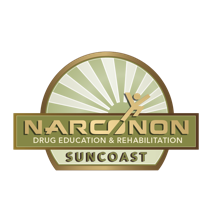Is the Twelve Step Model “One Size Fits All”?

Alcoholics Anonymous and Narcotics Anonymous remain to be some of the most popular groups in recovery. For as long as the 12-step model has been around, it would make a lot of sense that one and/or both of these groups are usually the first-choice method with someone who is struggling from substance abuse. However, a 12-step program might not always be the best thing for everyone. While I have known of many people getting and maintaining sobriety from a 12-step program, it is not necessarily suited for every case. As addiction goes, each one of us has our own story and there are a variety of issues that can contribute to what leads to one’s drug or alcohol addiction in the first place. The subject of addiction recovery can be a tricky one and what caused one addict to fall into addiction may greatly differ from the next person. Each personal situation comes with its own baggage. That baggage is usually complex and takes some digging and effort to thoroughly work through to make progress. For that reason, working the steps cannot be said to be effective on a case by case basis and those looking into recovery should not limit themselves to only 12 steps.
Meetings are a big element of 12 step. Attending meetings is a common way to engage with and relate to one another in sobriety if you are doing a 12-step program, but they aren't everyone’s cup of tea. Some people like attending meetings to participate in the social aspect of it, but others don’t do well with meetings for various reasons. One of these reasons I’ve seen is the religious aspect of the meetings—not everybody is receptive to it and this has been a major factor in participation dropouts—and I can understand why, as religion continues to be a touchy subject in society. Others simply do not feel comfortable with the stories shared amongst the group at these meetings. I have heard of some people disliking the idea of sharing or feeling obliged to share when they do not want to. I have had other people tell me that they feel triggered to use by the stories told at meetings.
Another aspect of the 12-step program that does not sit well with everybody is that it asks the addict to admit powerlessness over their addiction. While I can see this working for some to abstain, I know some people who do not feel like this mindset helps them at all. This principle of powerlessness can easily backfire on an addict, perhaps causing them to feel less responsible for their own actions and therefore less in control should they have a slip-up or relapse. For some, the identity that the addict is sick for the long-term is not always the most stabilizing in recovery and can cause them to focus strictly on the negative. I can see how this might handicap the personal growth you are trying to achieve while in the process of building yourself back up.
Just like anything, the 12-step philosophy does not resonate with everybody. Thankfully, these days there are many alternatives to the traditional 12 step method. It is important to find something that best fits your needs.
There are so many factors to addiction but in my opinion, what makes the Narconon program so unique and effective is that it breaks down these factors and handles each main point of focus surrounding addiction. On each step of the program, the addict is working through a new layer of their addiction. When I got to the end of my program, I felt like a completely different person than when I had started and I can honestly say that I experienced so much change in such a short amount of time that it was mind-blowing. I had never experienced that from involving myself in the 12-step route. While I will not go so far as to say attending meetings is a bad idea once you have gotten clean and sober, I recommend the Narconon route for treatment due to how impactful it is and the approach that one can and will get better from addiction. I can honestly say it is the only thing that was able to fully pull me out of a rough spot, and I know many others who would say the same.
By Danielle P.—Narconon Suncoast Graduate and Contributor
